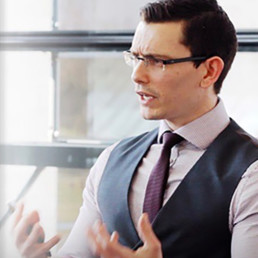
Written by Rob Power
Dr Rob Power is an award-winning teacher, educational consultant and cultural historian specialising in global history and indigenous knowledge. Before returning to academia as a lecturer at the London School of Economics and Political Science in 2018, and more recently as founder of Powerful Histories, Rob was Head of History and Politics at a leading independent school in Oxfordshire.
Indigenous Knowledge should be central to curriculum diversity initiatives
On 13th September 2007, the General Assembly of the United Nations adopted The Declaration of the Rights of Indigenous Peoples. Enshrined in the document was a commitment to uphold standards for the survival, dignity and well-being of the Indigenous peoples of the world.
In recent years, there has been a growing recognition of the importance of incorporating indigenous knowledge into education. Indigenous knowledge refers to the unique knowledge, traditions, practices, and beliefs of indigenous communities. It is knowledge that has been passed down from generation to generation and encompasses ways of knowing, being, and doing that are rooted in a deep understanding of the natural world and the relationship between humans and the environment.
As schools throughout the world begin to consider ways in which to develop sustainable practices, the prioritisation of connection to our living environment occupies centre stage. It is in this context that Indigenous knowledge can be particularly impactful. Inclusion of non-appropriated Indigenous knowledge into our teaching – on issues such as the environment, community, climate, medicine, economics and science – isn’t just about creating a culturally relevant and culturally responsive curricula. It can also help to create a more equitable and inclusive learning environment that recognises and values diversity within our own communities.
The community-based approach to problem-solving that lies at the core of Indigenous knowledge systems should have a place in every school. Whilst honouring the robust and deep knowledge held by Indigenous communities, we help our learners to bridge divisions between cultures and constructed knowledge hierarchies and develop a holistic understanding of history, culture and the natural world. It can be a powerful tool for promoting social justice, encouraging pupils to critically reflect on the effects of forced assimilation, cultural genocide, and ongoing social and economic marginalisation of indigenous peoples.
Indigenous Knowledge in the Curriculum
Incorporating Indigenous knowledge into our teaching should go beyond rudimentary case studies. Prioritising the voices and experiences of indigenous peoples and communities, involving indigenous community members in design of curriculum and assessment materials, and utilising knowledge acquisition pathways of the communities we are studying is essential. Prioritising Indigenous knowledge thus not only affords an opportunity to diversify our curriculum, but to globalise our teaching.
Valuing, respecting, and integrating Indigenous knowledge into the curriculum involves developing an understanding of knowledge and knowledge acquisition within Indigenous communities. Oral tradition, ceremony, connection with the natural world and spiritual practice are integral to the continuation of Indigenous ways of being and convey deep meanings and concepts that are not easily translatable in Western codes of learning. It can thus be helpful to focus on four principal pedagogical approaches when teaching Indigenous stories and experiences: land-based teaching, storytelling, performance-based teaching and experiential teaching. The incorporation of Indigenous languages can also be beneficial.
When incorporating Indigenous knowledge into your curriculum, it is important that that knowledge takes centre stage. This means refraining from treating the study of Indigenous communities as case studies and instead placing those communities – and their ‘ways of knowing’ – as the lens through which we learn. Not only does this create an opportunity to truly globalise our pedagogy, but so too it affords space for interdisciplinary learning. Let us say, for instance, that rather than teaching the topic of ecology or biodiversity through a Geography or Biology curriculum, we instead delivered a series of lessons focusing on the semi-nomadic Chahdegal Balouch peoples in Iran. A focus on the community would not only allow the study syllabus-specific content – on environmental management, land distribution, sustainability and migration, for example – but would open opportunities to consider the interconnectedness of socio-cultural values and the living world. This is of course an isolated example, but think of the possibilities that a curriculum centred on Indigenous knowledge could offer.
Global Teaching in Practice:
Incorporating indigenous knowledge into the classroom is an essential step towards providing a more inclusive, diverse education. It is about reimagining what education means and looks like, developing an approach where knowledge hierarchies are deconstructed, disciplinary barriers are challenged and all communities are valued and respected. Collaborating with those communities is essential, not only in providing a culturally relevant education for pupils, but also as a means to develop culturally sustaining pedagogies that frame diversity in a truly global context.
My work with schools through the Global Teaching Project primarily involves supporting teachers to recognise the importance of Indigenous knowledge and de-centring dominant narratives responsible for the creation of exclusionary barriers. In a recent project at a school in West London, teachers came together to transform a Year 8 module on ‘The Americas Before Europe’. Together, they worked to challenge dominant Western narratives presenting Indigenous American communities as homogenous, passive, and situated within the past. Drawing on newly-made connections and interviews with Indigenous American artists and community leaders, teachers centred the perspectives of indigenous voices. Pupils responded by curating a virtual exhibition which celebrated the stories and experiences of Indigenous communities. This was not co-option of community knowledge but a conversation between learner and community members.
The Global Teaching Project, and its focus on Indigenous knowledge and global pedagogies, forms an important part of ongoing learning and self-reflection about issues of power and privilege. More work is sorely needed in this regard, not only in critical reflection of what our pupils learn, but also in consideration of the impact that diversifying a curriculum through content change alone can have in the long term.

